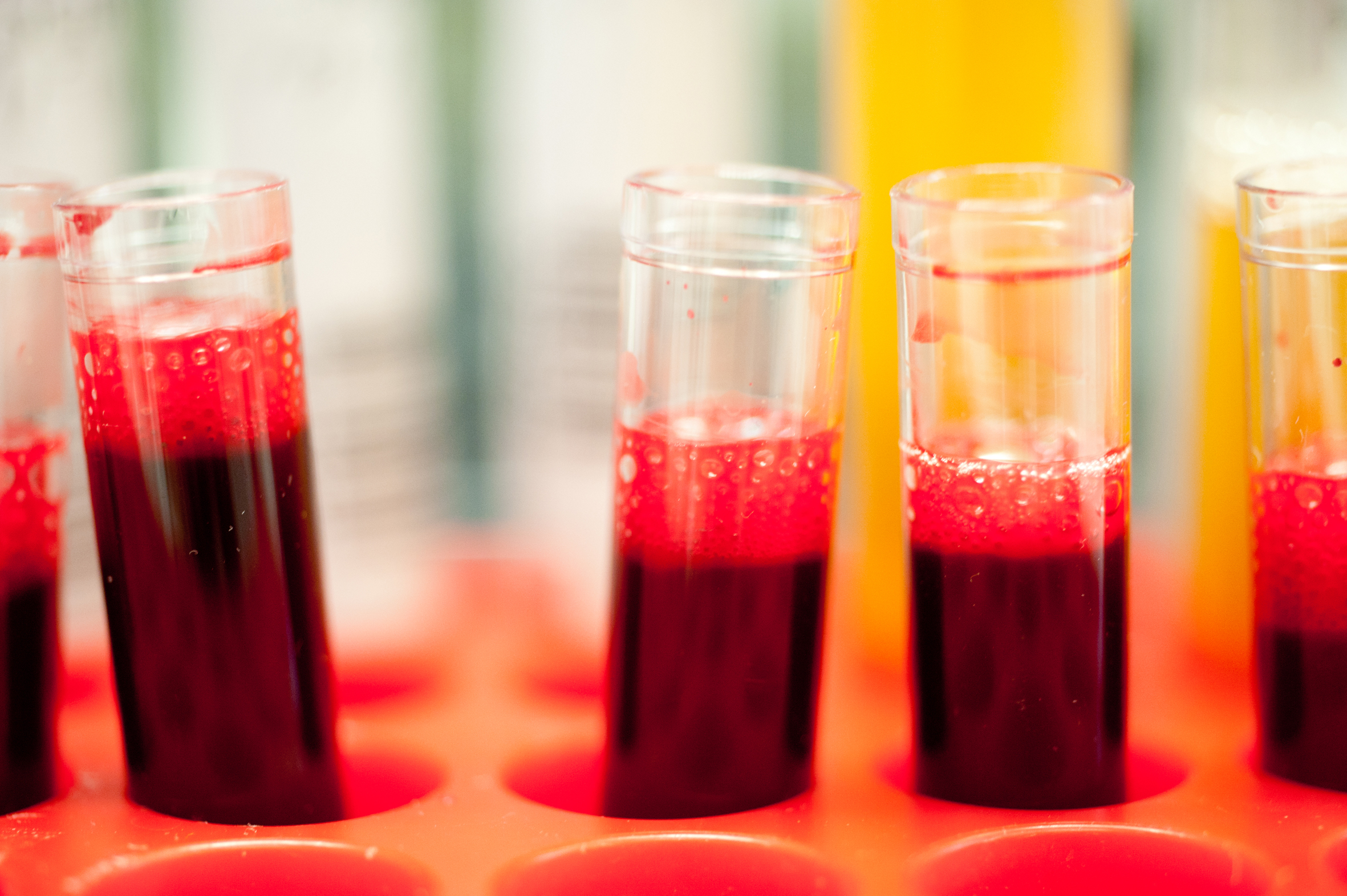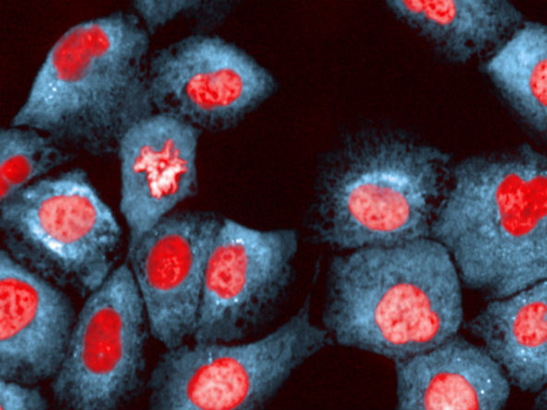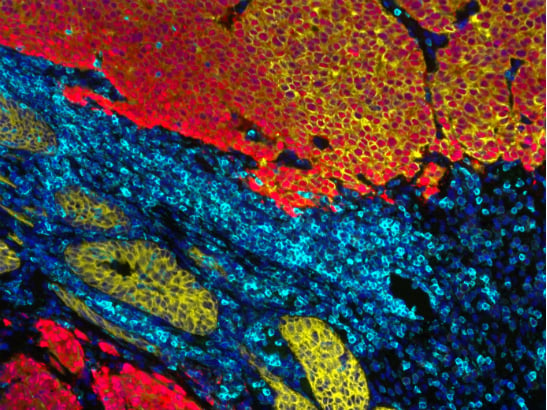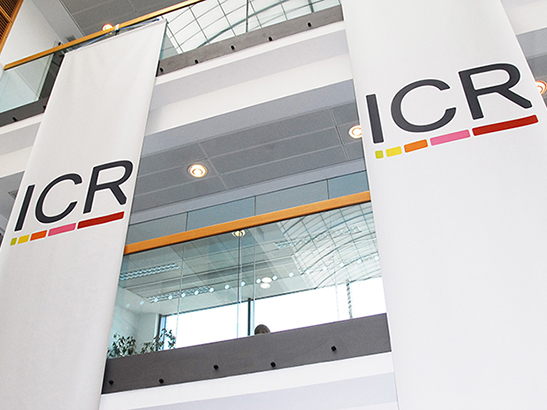News and features
Read the latest news and features about our world-leading research, discoveries, fundraising and philanthropy. If you want to keep updated on our news, you can follow us on social media or sign up for our Search newsletter.
If you’re a journalist and want to find out more, you can contact our media relations team.

Testing blood metabolites could help tailor cancer treatment
Testing for metabolic changes in the blood could indicate whether a cancer drug is working as designed, a new study reports.

Cholesterol production could drive resistance to anti-hormone treatment in ER-positive breast cancer
Common breast cancers could be using a cholesterol-based molecule to evade standard anti-hormone treatments, causing patients’ disease to return, according to new research.

Blood test supports use of potential new treatment for patients with stomach cancer
Testing cancers for ‘addiction’ to a gene that boosts cell growth can pick out patients who may respond to a targeted drug under development, a major new study reports.

New protein test predicts survival for advanced prostate cancer patients
A protein linked to prostate cancer could predict which men are likely to develop resistance to current treatments and die earlier, a new study reveals.

New hope for prostate cancer screening
Taking samples of prostate cells from all men with a family history of prostate cancer could help to identify a significant number of new cases of the disease, according to new research.

ICR and Imperial College London set out partnership plans
The Institute of Cancer Research, London, and Imperial College London have agreed plans to develop a strategic partnership through the creation of a virtual Cancer Research Centre of Excellence (CRCE).

Test for six key genes can spot aggressive breast cancer
Testing the activity of as few as six key genes is helping to identify women with particularly aggressive breast cancer.
-547x410.jpg?sfvrsn=c727183b_2)
New target for lung cancer identified
Researchers have uncovered a key part of a chain reaction of signals that tell some lung cancers to grow. This new insight into a major cancer signalling pathway could prioritise new drug targets.
-content.jpg?sfvrsn=70806f31_2)
Using molecular imaging to take a snapshot of cancer and its treatment
Researchers at The Institute of Cancer Research, London, are investigating new ways to use molecular imaging to predict how a person will respond to cancer treatment. Liz Burtally finds out how.

Cancer research technology pioneer fund boosts investment in drugs that block cancer defences
The Cancer Research Technology (CRT) Pioneer Fund has today (Thursday) announced its investment in research to develop new drugs called heat-shock factor 1 (HSF1) pathway inhibitors, which have the potential to block a protective mechanism used by cancer cells.

Gruelling cycle ride raises almost £250,000 for cancer research
Tim Morgan has faced an extraordinary challenge this month in a cycle ride pitched as the 'hardest event in the Cycling Weekly Sportive Series' to raise funds for cancer research. His amazing efforts have already raised almost £250,000.
-trains-for-the-fred-whitton-challenge-in-2016-to-raise-funds-in-memory-of-professor-chris-marshall-(right).jpg?sfvrsn=3c28268b_2)
Pioneering cancer researcher takes on charity cycle in memory of his colleague
Pioneering cancer researcher Professor Richard Marais is taking on a 112-mile cycle challenge to raise funds in memory of Professor Chris Marshall – an outstanding and inspirational scientist whose work led to the development of new cancer treatments.
